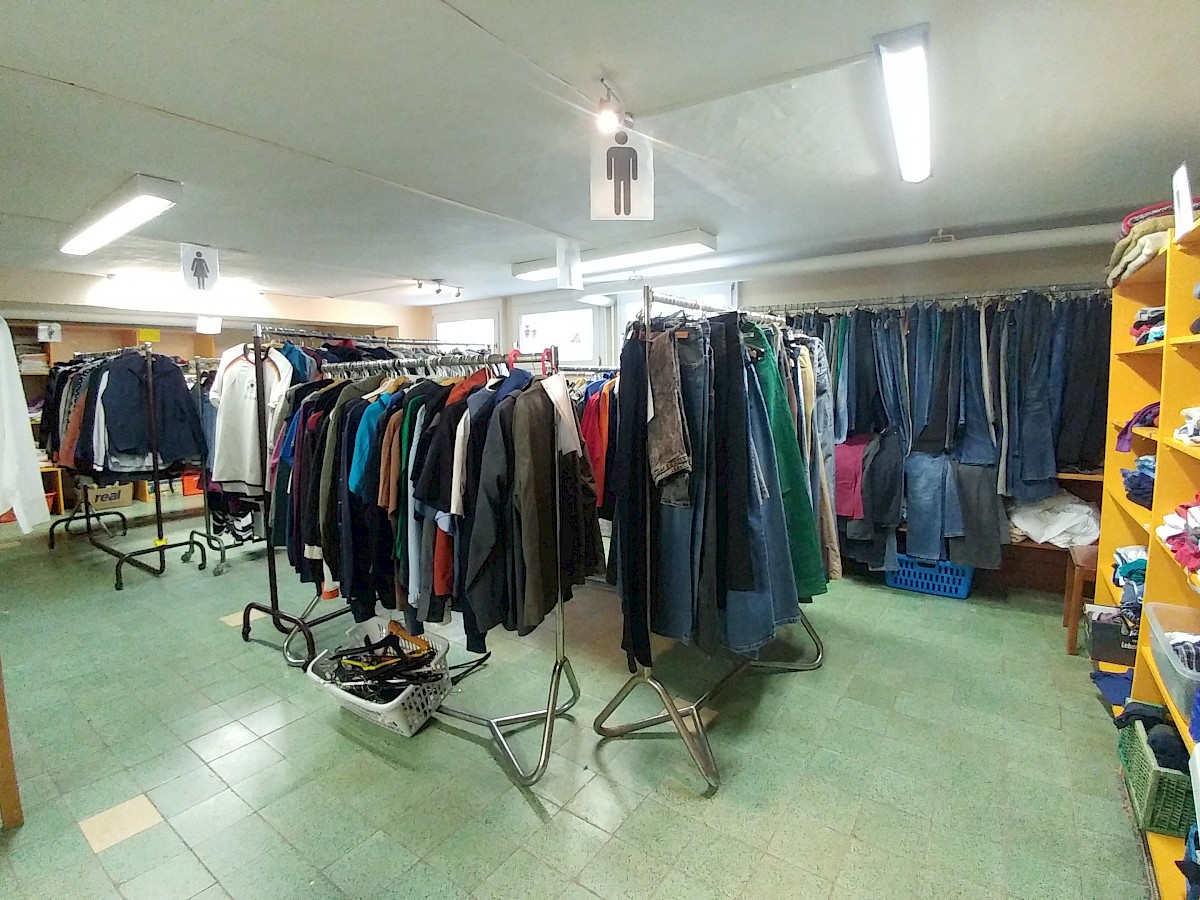
Objects as means of development
It was Thursday and I was helping in the charity closet of GDL Friedland. 1 I was tidying up after the people who took the clothes, checked them and left them untidy. I was busy with folding the children’s clothes and putting them in the drawers, when I heard a couple arguing in Farsi, the wife was asking her husband to stop searching and leave, but the husband was not listening.
They had no idea I understood their language. The woman called her husband by his first name and groaned a bit, saying that he was searching in vain because all the pants were big for him. The husband carried on with his rummaging and did not reply. The woman called him again, this time a bit louder, asking to leave the items as they were useless. Switching to jackets the man uttered, frustrated: “Free, whatever. Let’s take them all”
I was finished arranging children’s clothes when the guy approached me and told me in a low voice in his broken English that there were good items in the back room. He knew about it since the last time he was in the closet he had made friends with a volunteer who then had brought out nice sneakers from the back room. But now the people behind the counter refuse to bring them to the front. He asked if I could go get them for him. I answered that I would ask my supervisor. I referred to my supervisor and discussed what the young man had requested, as all available jeans were bigger than his size. My supervisor turned to the young man and explained that there were items in the back room, but they were also big, since, by comparison, Europeans were taller than the middle eastern people, so he would not find anything useful anyway.
It was an ‘end of discussion’ reply. I was not convinced that there were no smaller jeans in the back room neither was I convinced about the young man being in need of the jeans. It seemed more like he wanted to have nicer items. I busied myself arranging the racks, wondering if it was the response comparing Europeans with the middle eastern people that sounded annoying to me or whether it was the guy who was a little greedy? Was the answer running counter to the question of people’s dignity, which we were supposed to restore and secure?
Similar to what I discussed in the Die Winterjacke, people in hard times usually gather things, collect objects and store stuff they are not really in need of or even when they are not sure about their applicability, but they store them as means of development. They are not sure about their applicability in that moment perhaps, but they imagine maybe they would make use of them in an innovative way or still at least feel more secure because they have things they can rely on. Susan Pearce (2003 [1994]) 2 explains in her book that classifies people who collect objects according to their motivations, quoting Ruth Formanek: “We have tried to divide this group into (a) those who collect as a defense against feeling low, (b) those for whom collecting appears to be a challenge, a wish for expertise, knowledge or mastery, and (c) those for whom collecting has a narcissistic function, that is, is essential for the maintenance of their self-esteem…”.
It means that some collectors or gatherers are facing their sense of loss, low feelings and the depressed status. Some struggle to maintain their self-esteem and restore a sense of stability and having control over things.
As I would see this young guy around the camps very often he was always stylishly dressed with the items he took from the charity closet. In the afternoons he usually visited the Bravo youth club 3 to play table-tennis or billiard and as the age-range condition to enter the youth clubs was 12-27, he usually dressed himself like a teenager with a hip-hop style cap worn backward and loose baggy blue jeans falling over a pair of bright-colored sneakers in order to enter the club without being interrogated about his age which was exceeding 27. I wondered how could the outfit be an obsession when there are far more perilous things to obsess on, such as the outcome of their asylum case. But it could be interpreted as a strive for normality. They struggle to live a normal life.
Through a reflection, it seems more like going shopping and gathering items such as clothing and crockery from the charity closet is somehow as an escape from the states of uncertainty, concern and unhappiness. A distraction from the ‘waiting’ phase.
Now that I look back again to what had happened that day, I understand better the motives behind the young Iranian man’s behavior. Perhaps it was to prove either to themselves or their families back at home, to which they send pictures in their European brand clothes in front of a nice background, that they are happy and not miserable. A psychological need to restore the self-esteem, a strive to rescue themselves from not-having, poverty and misery which is interpreted as ‘greed’ by the outsiders who watch, misjudge the situation and through that, take away the dignity these people are grasping for.
Malihé Bayat Tork